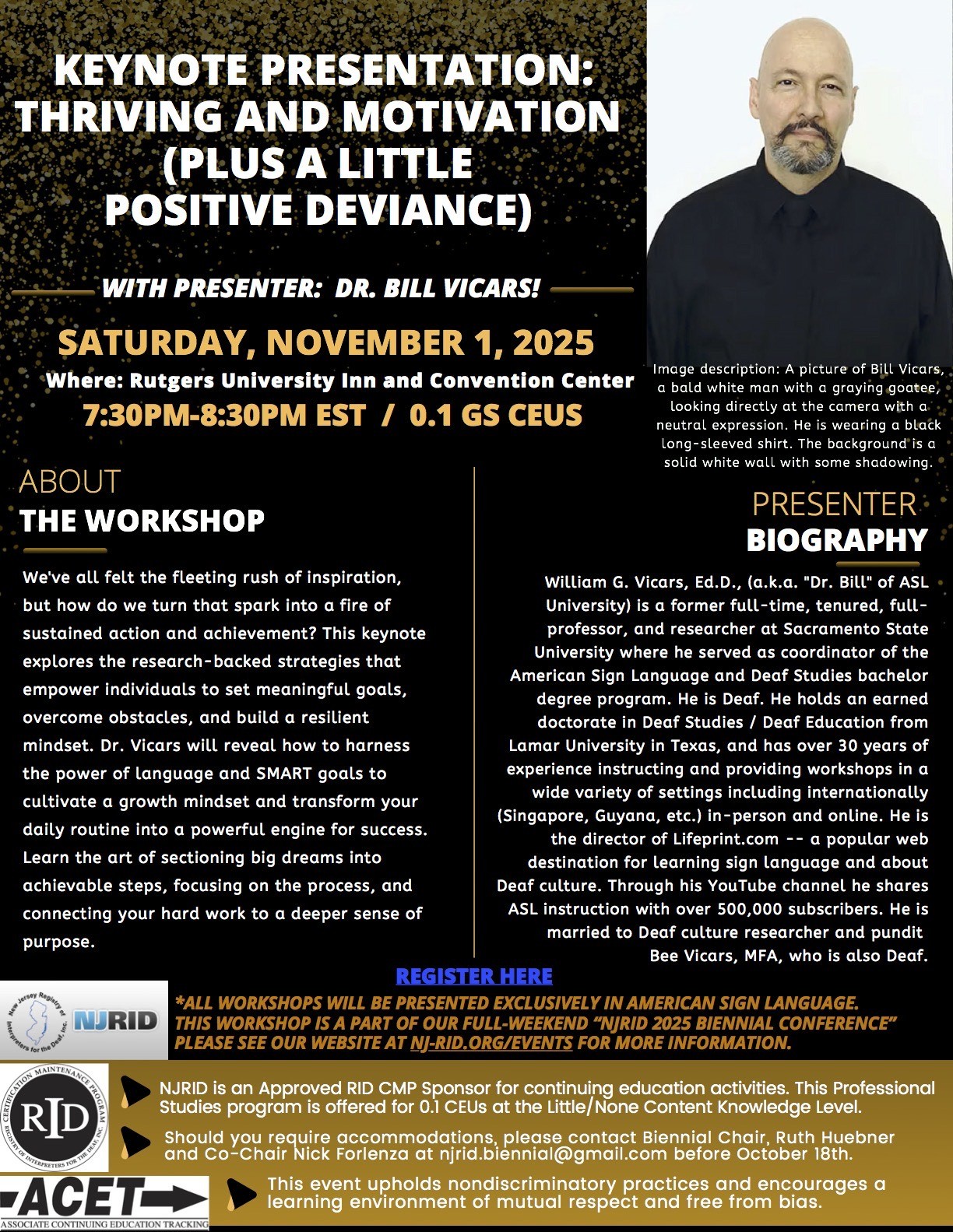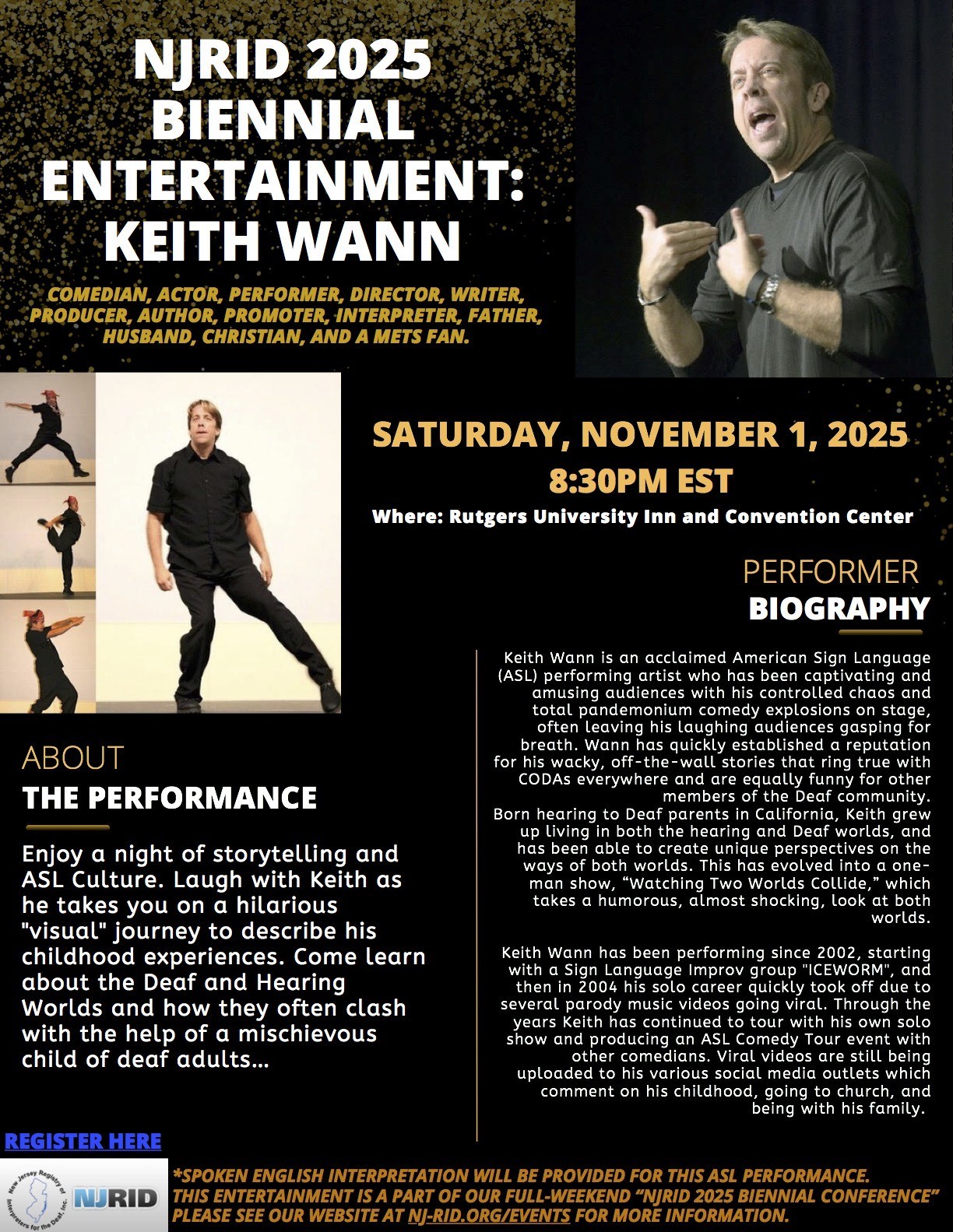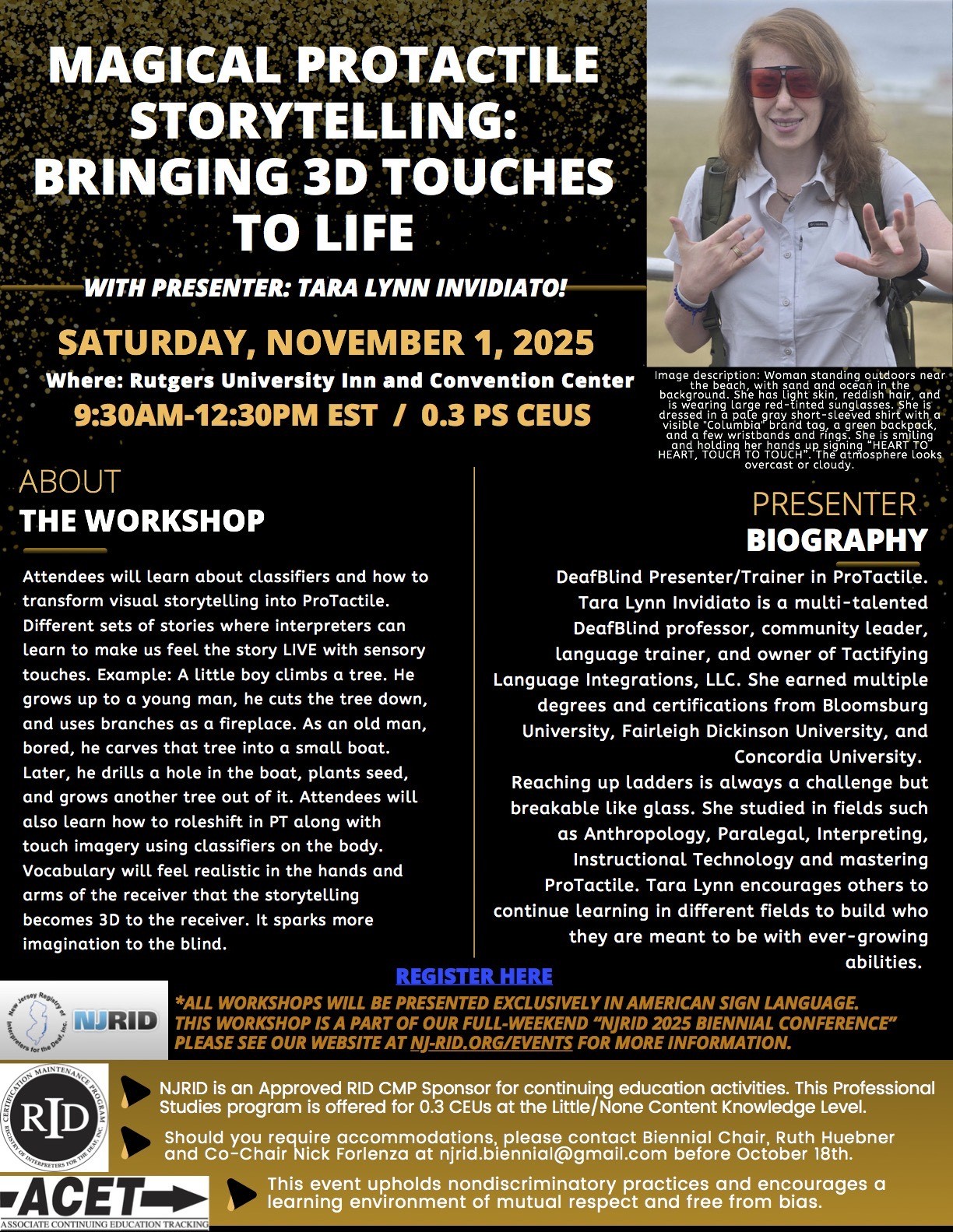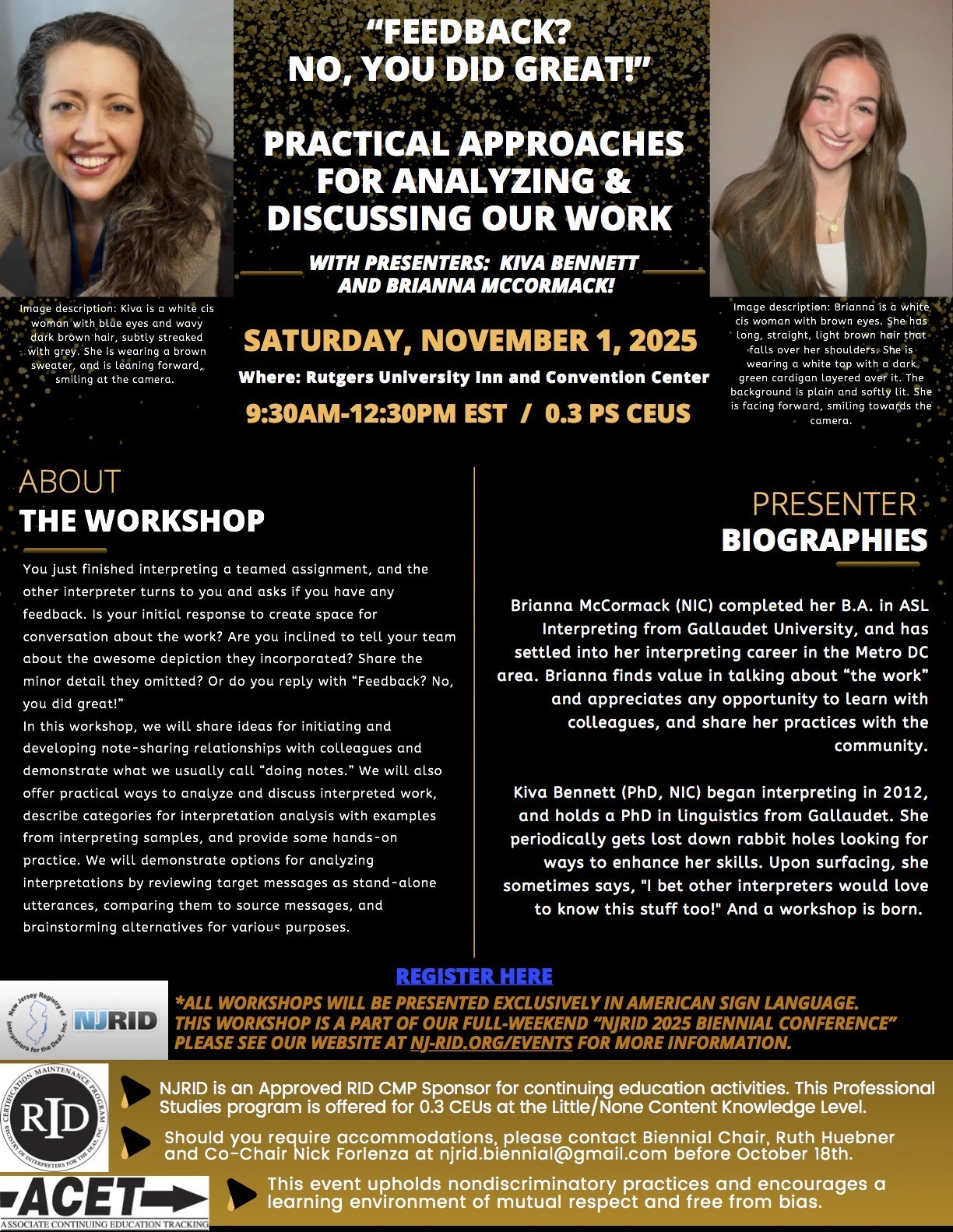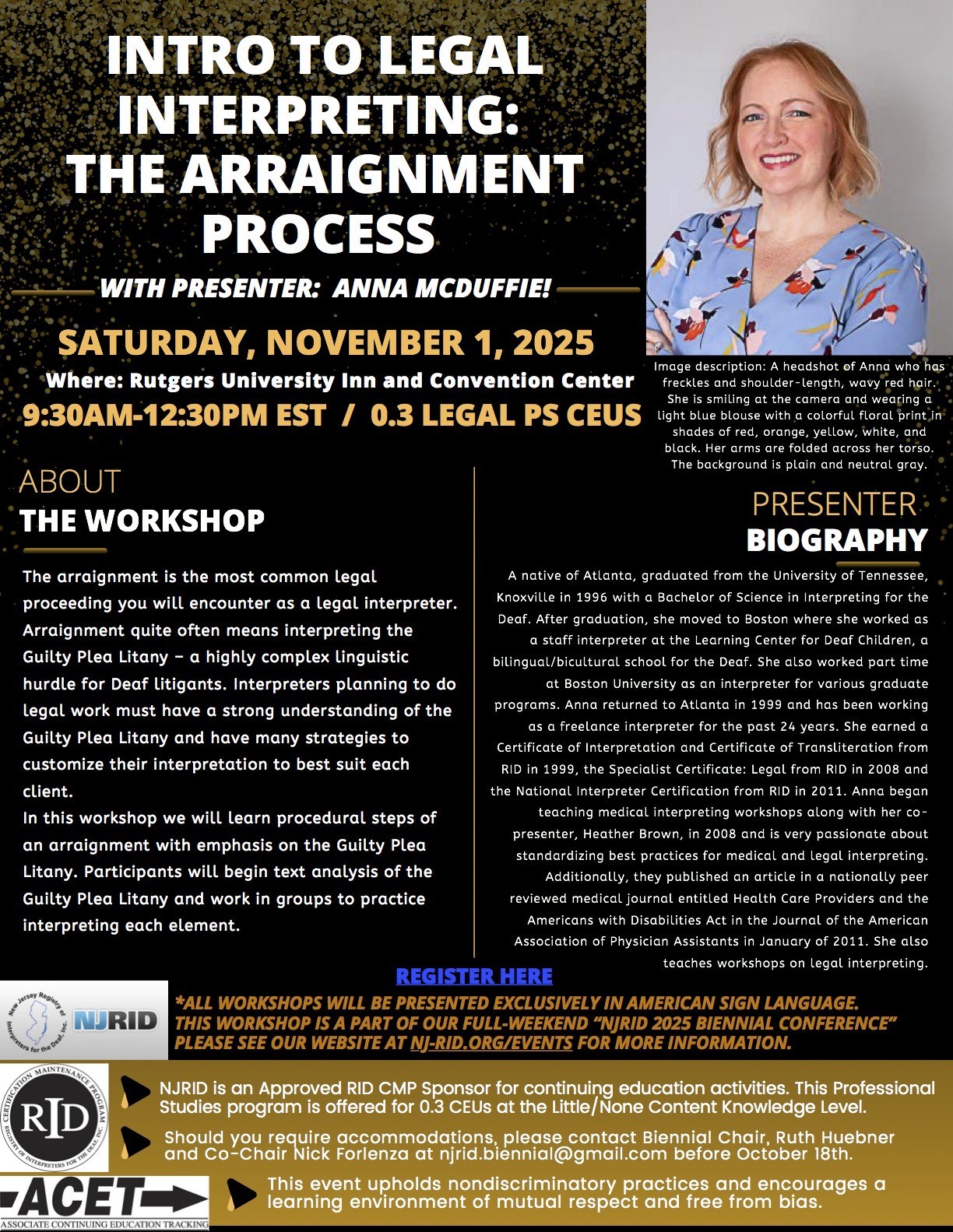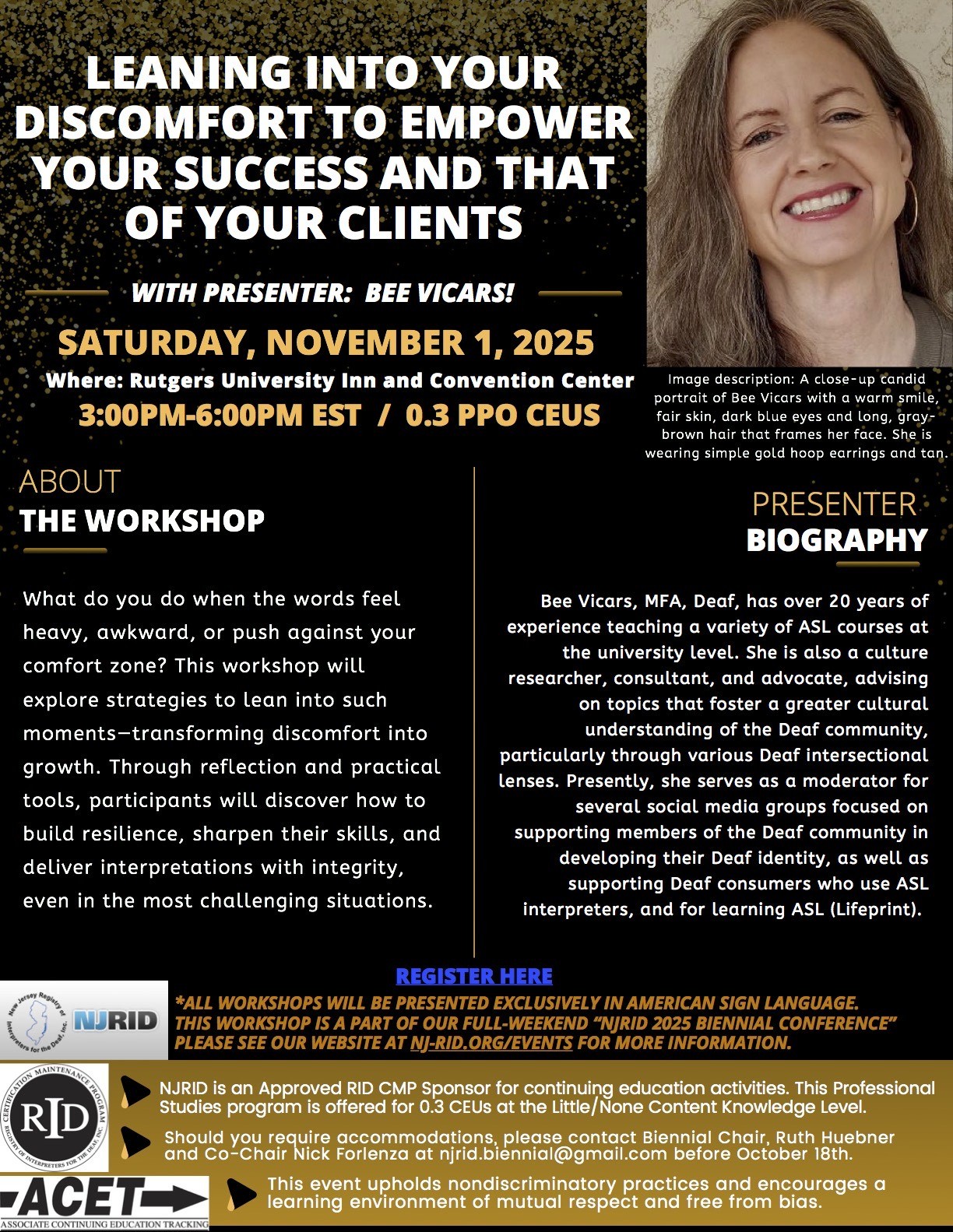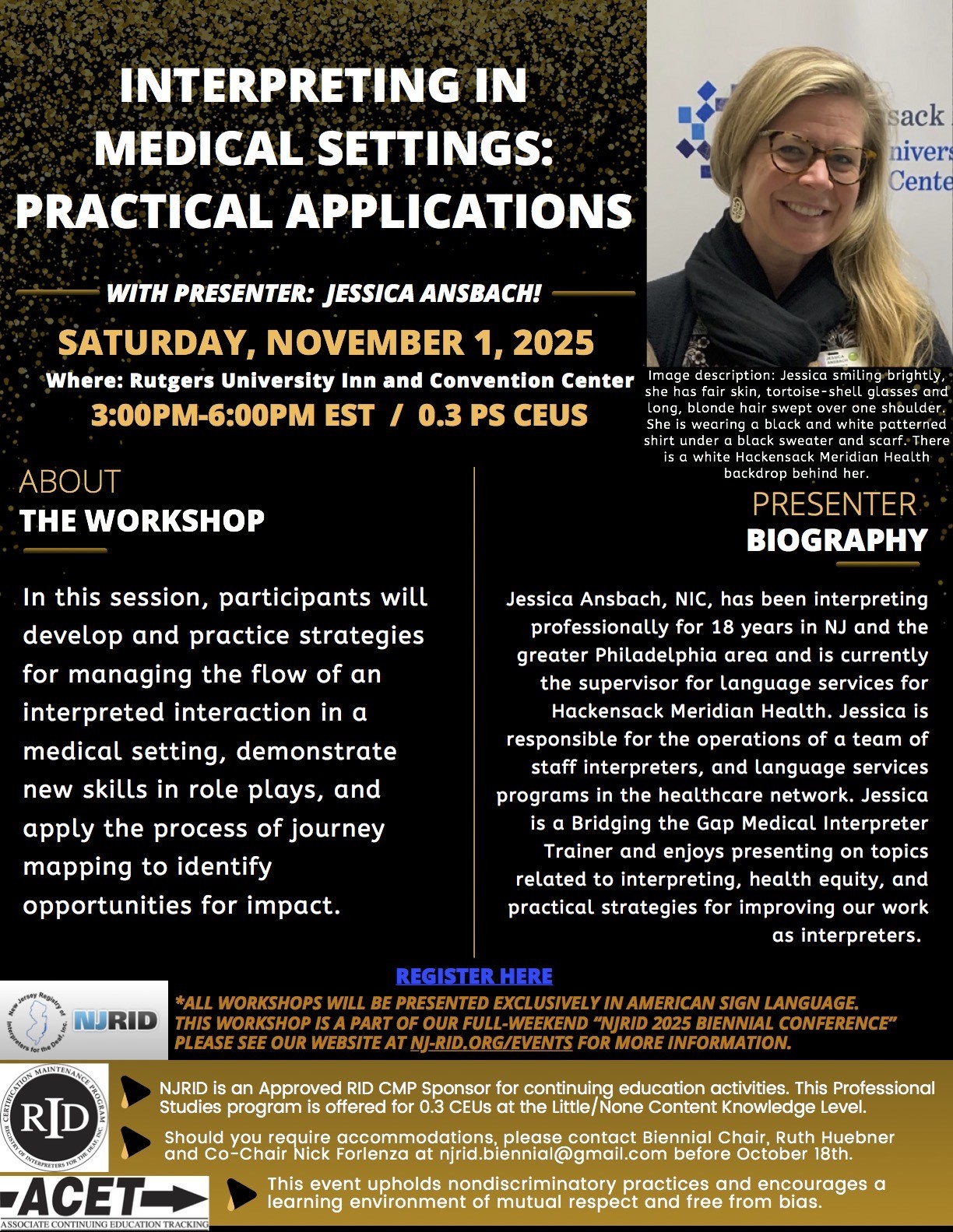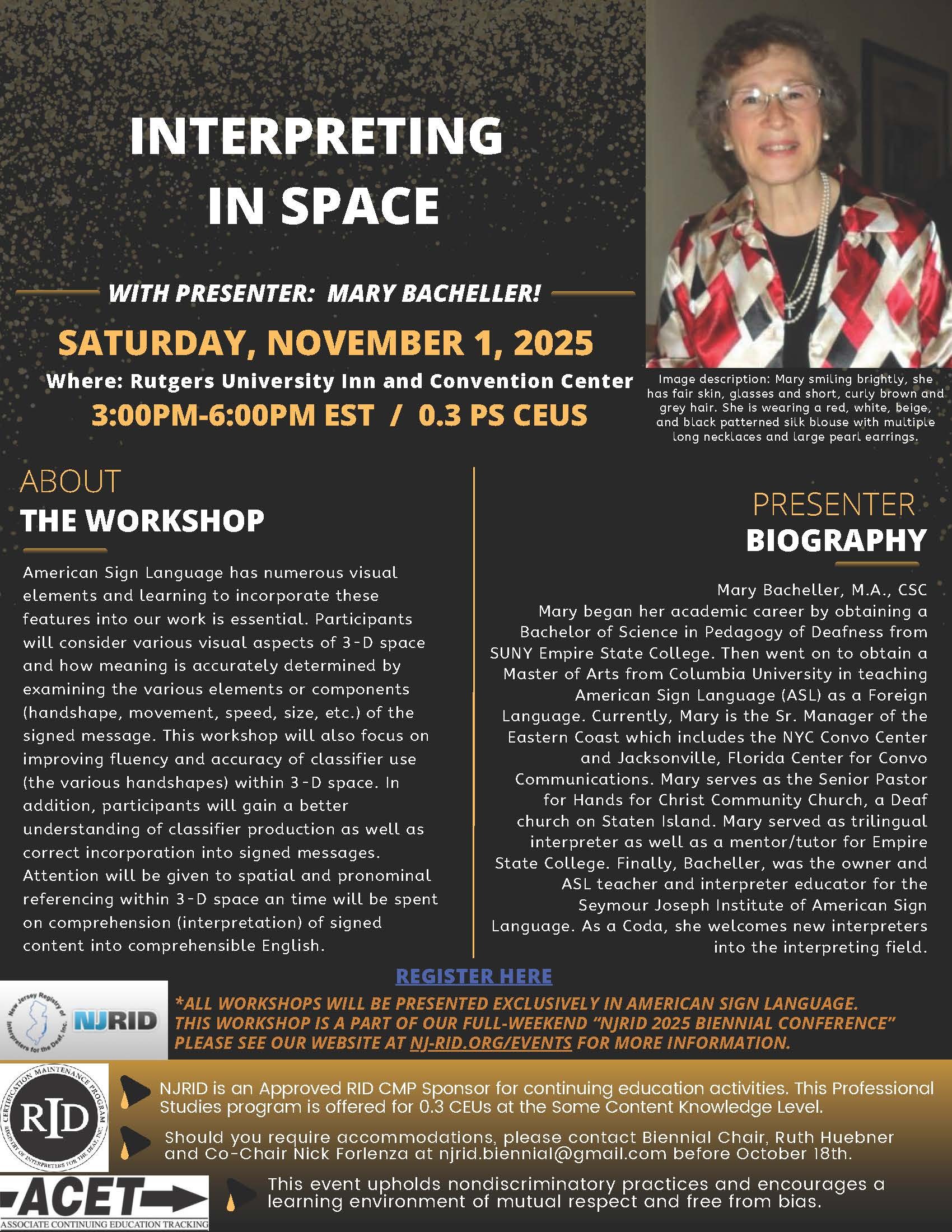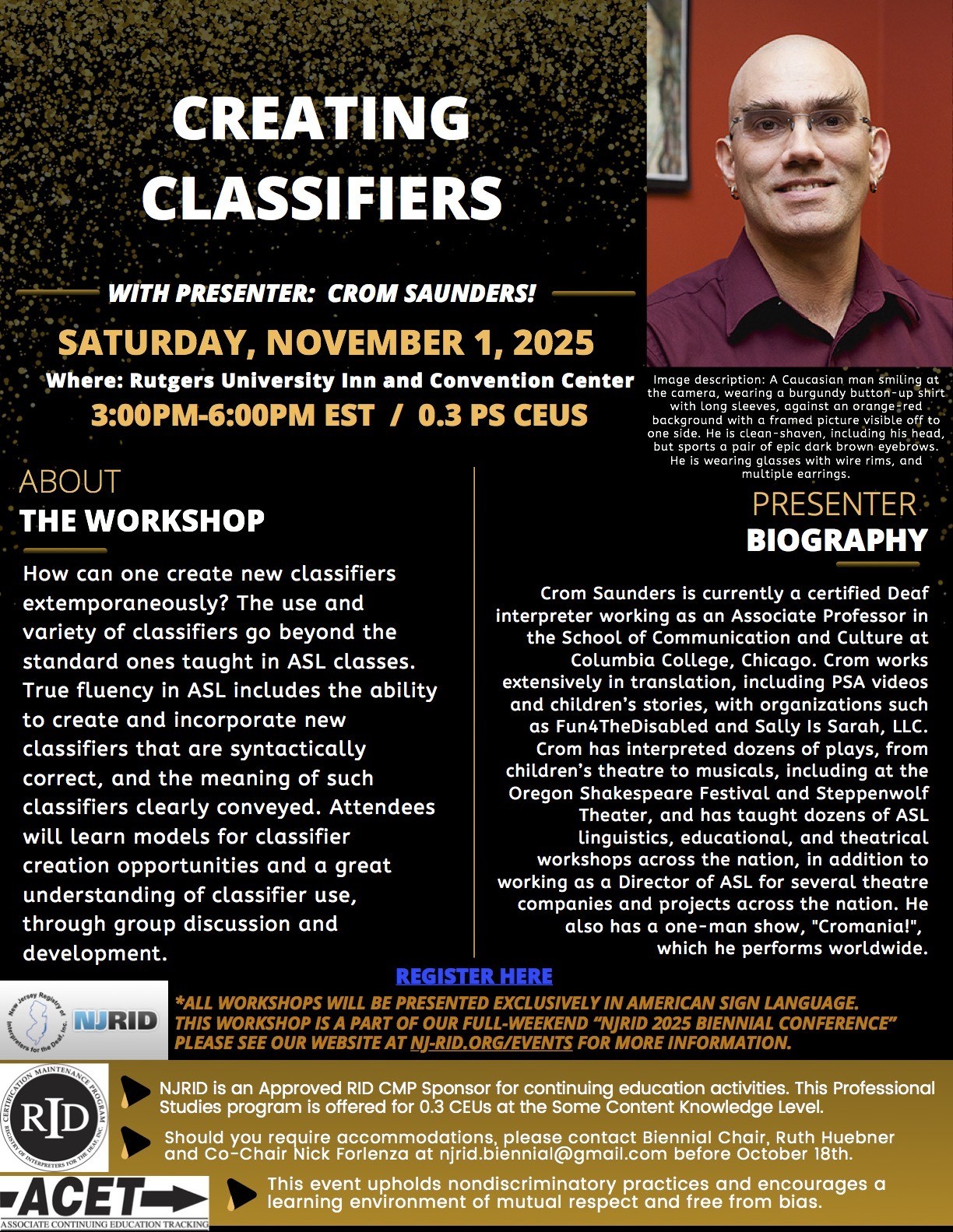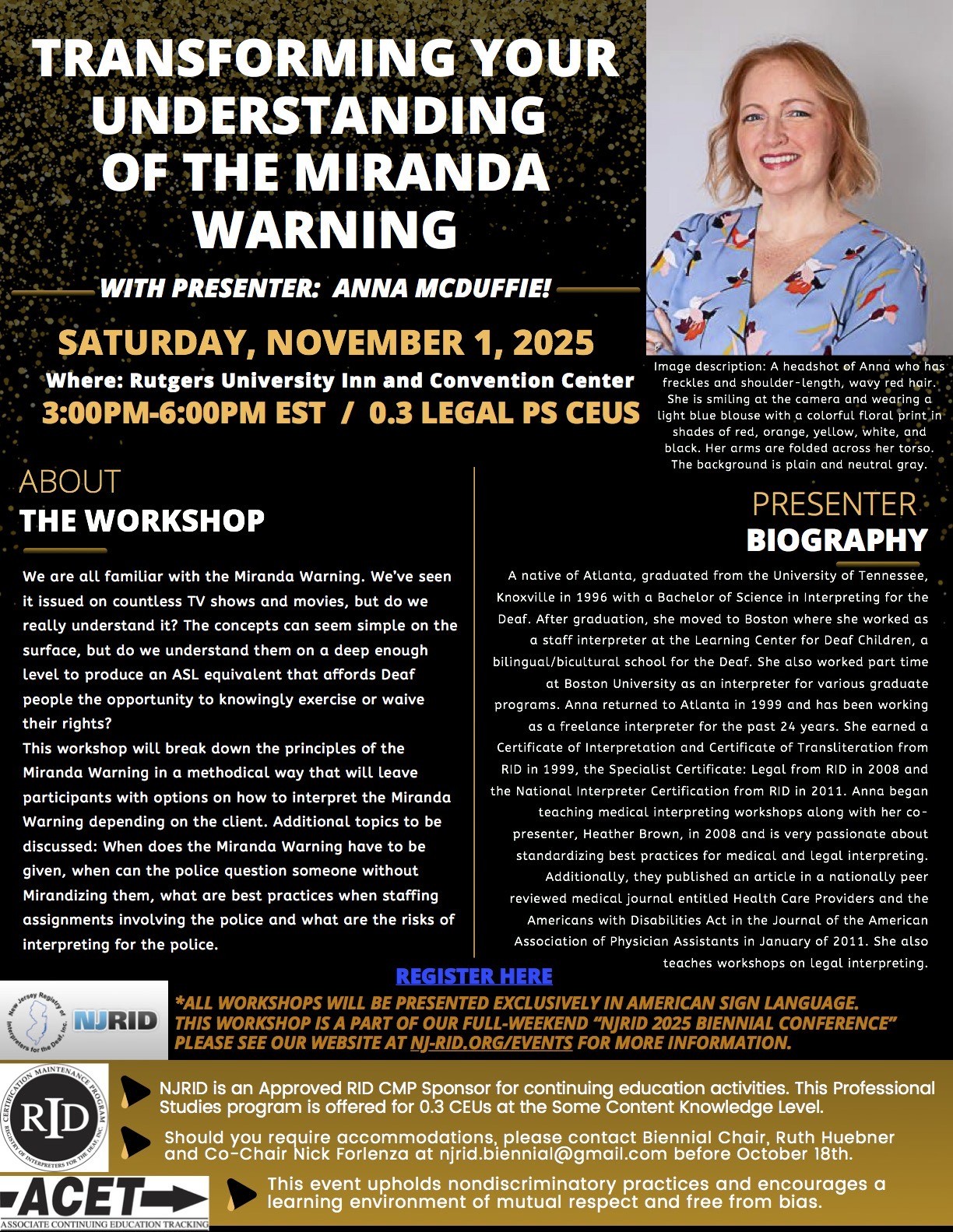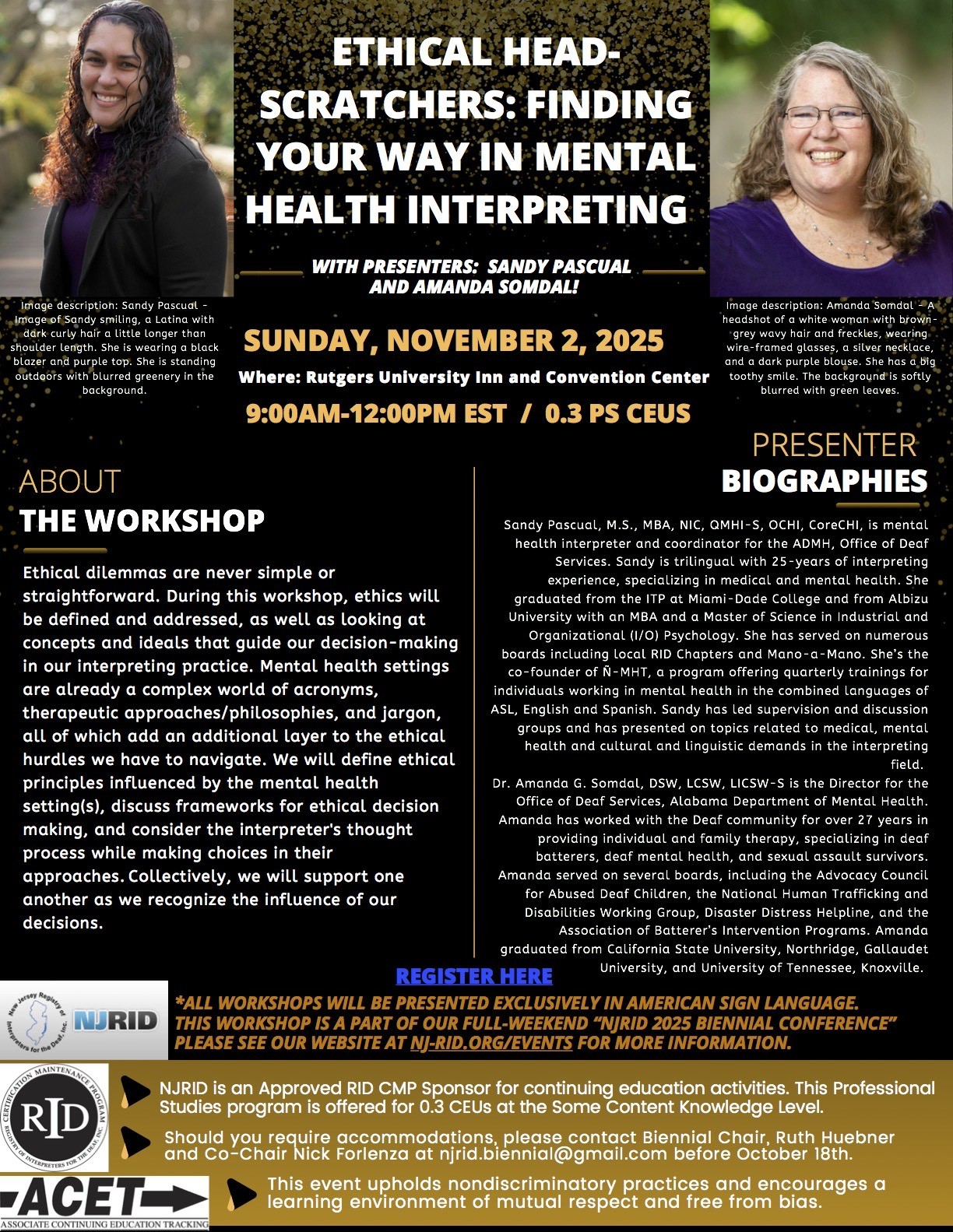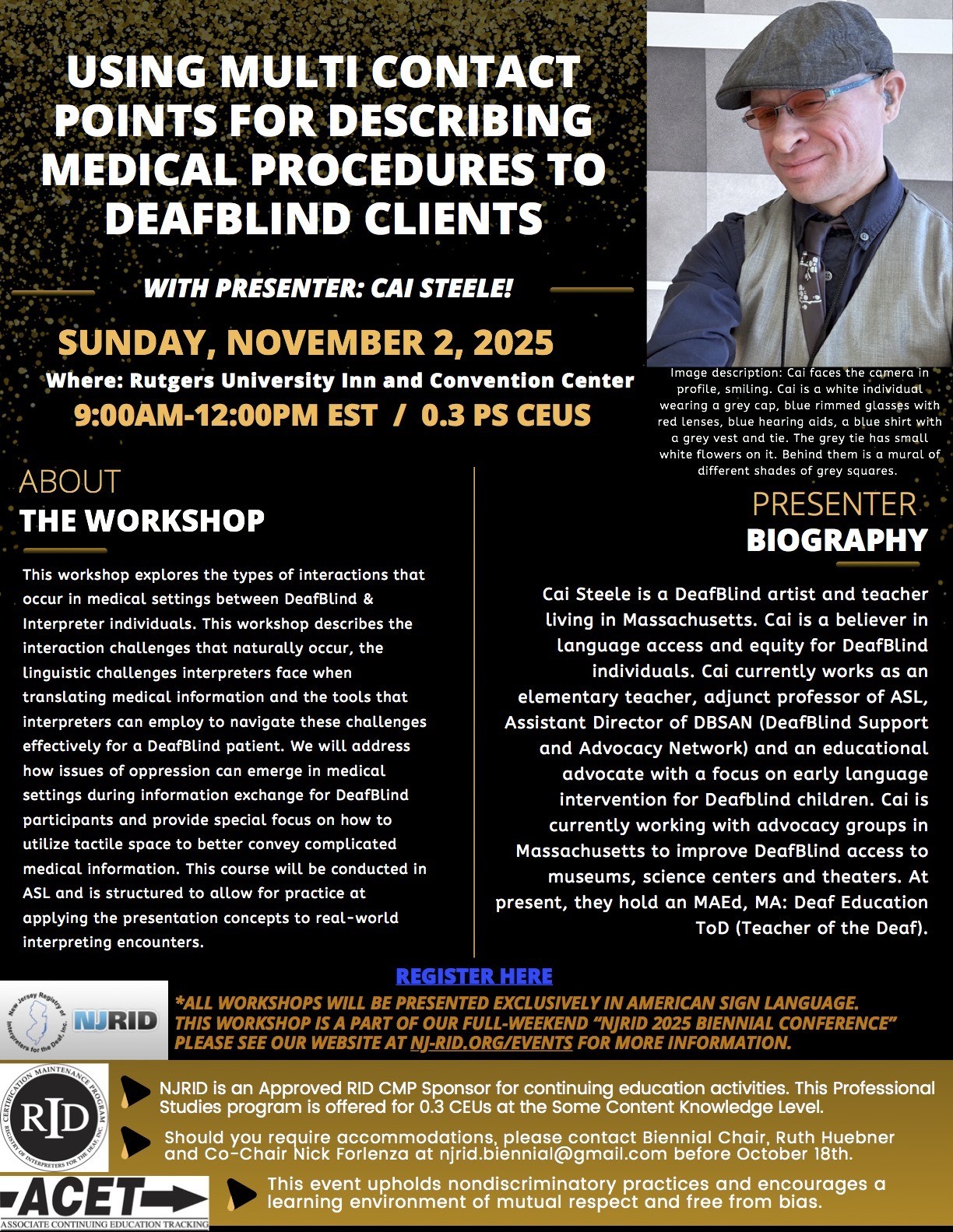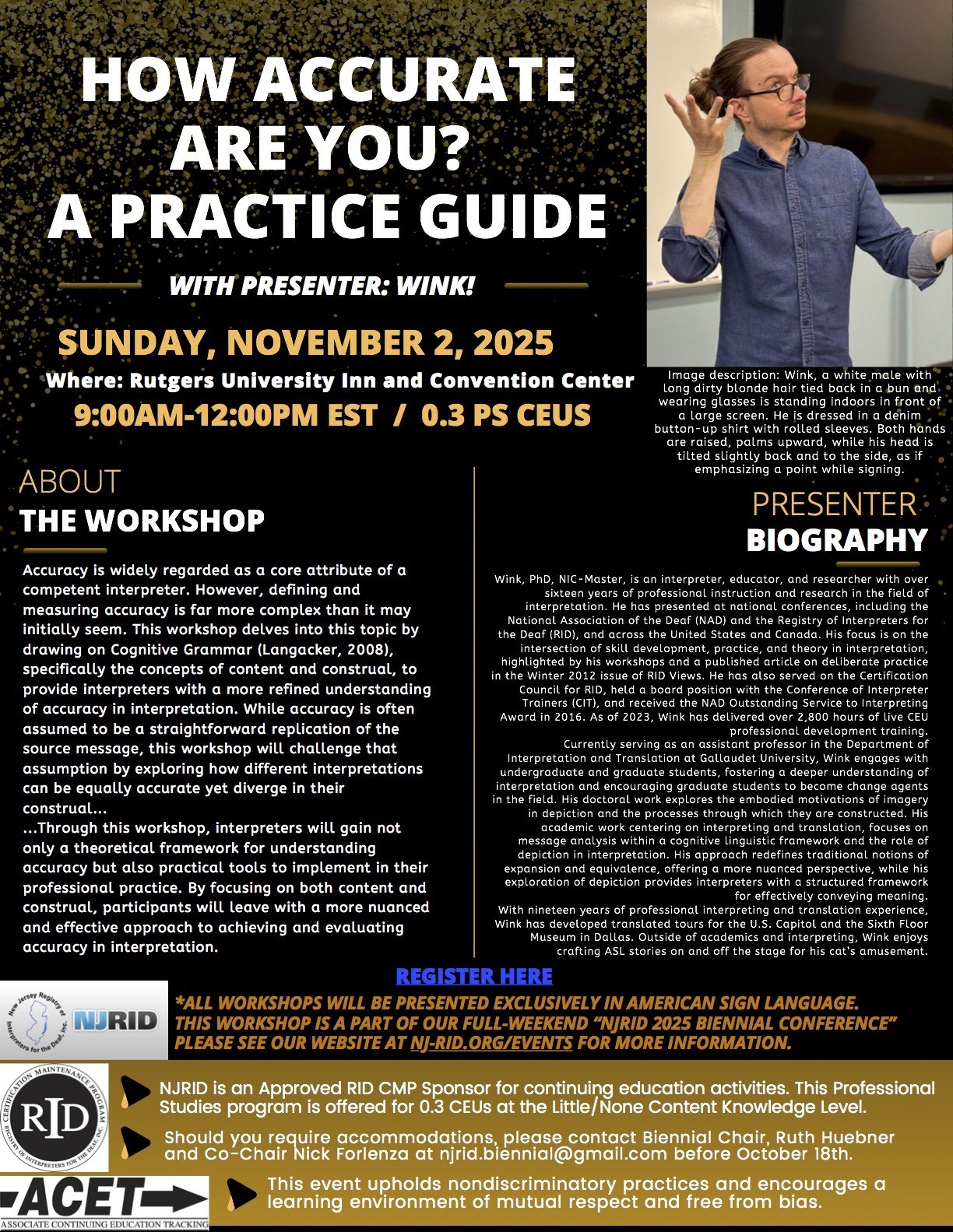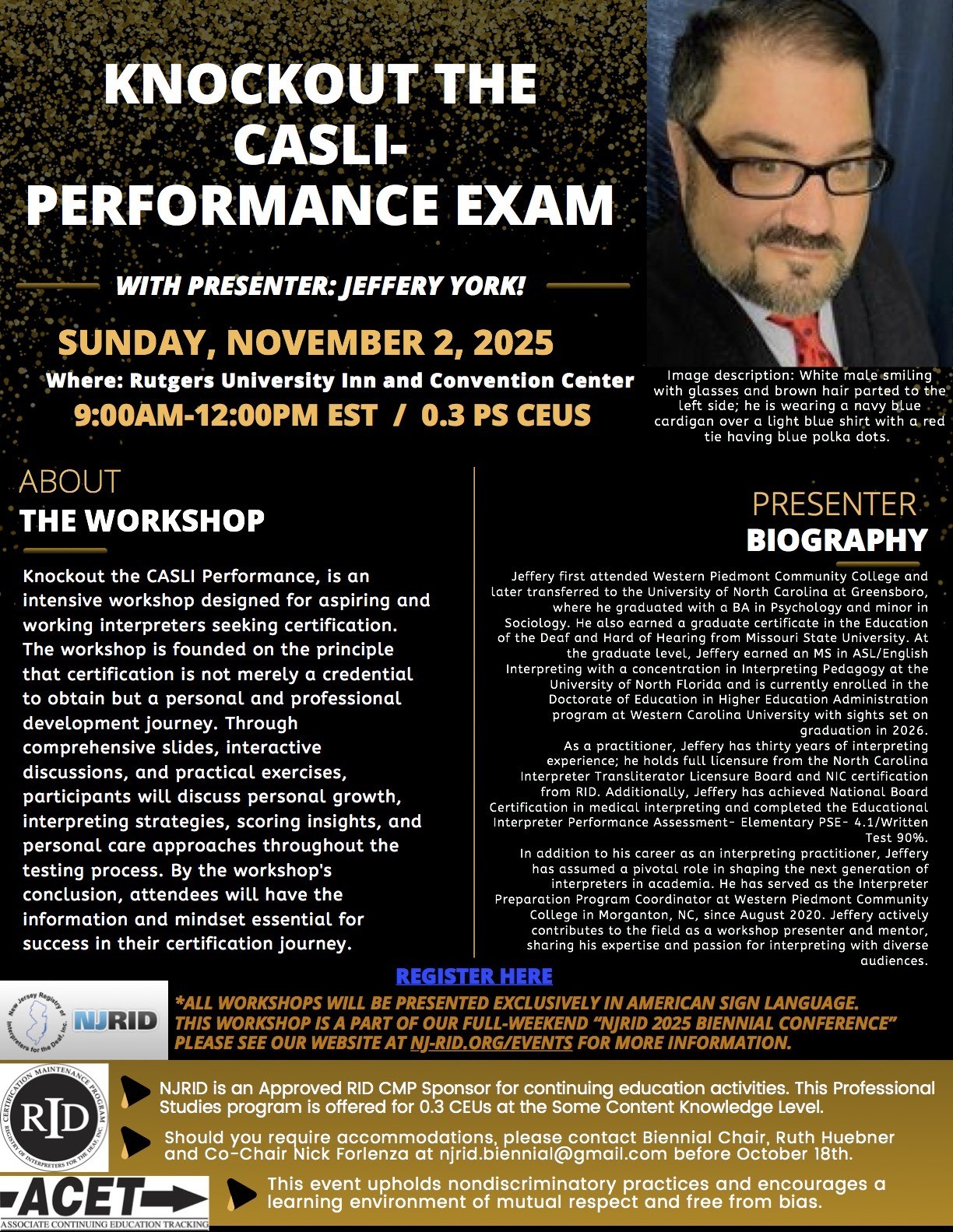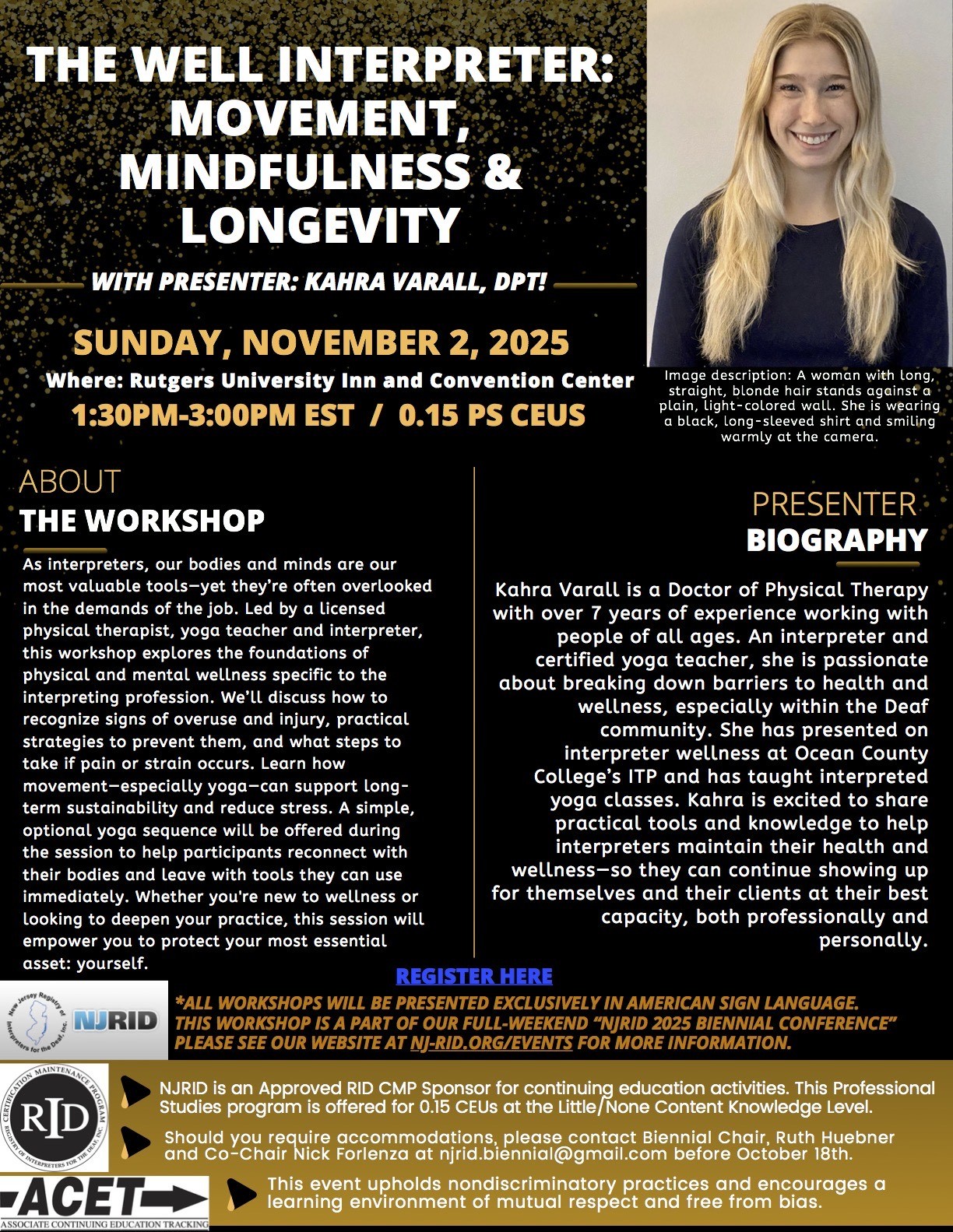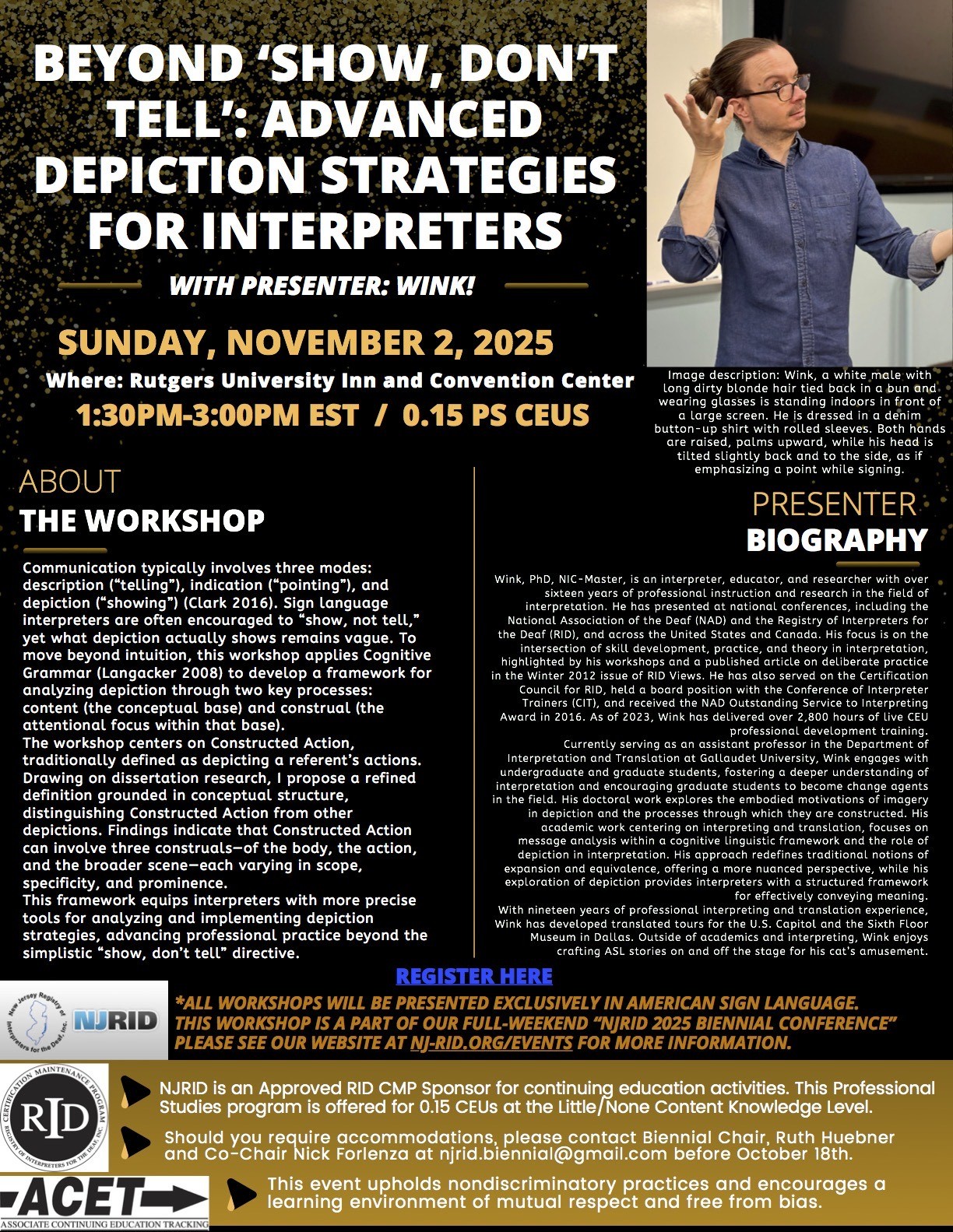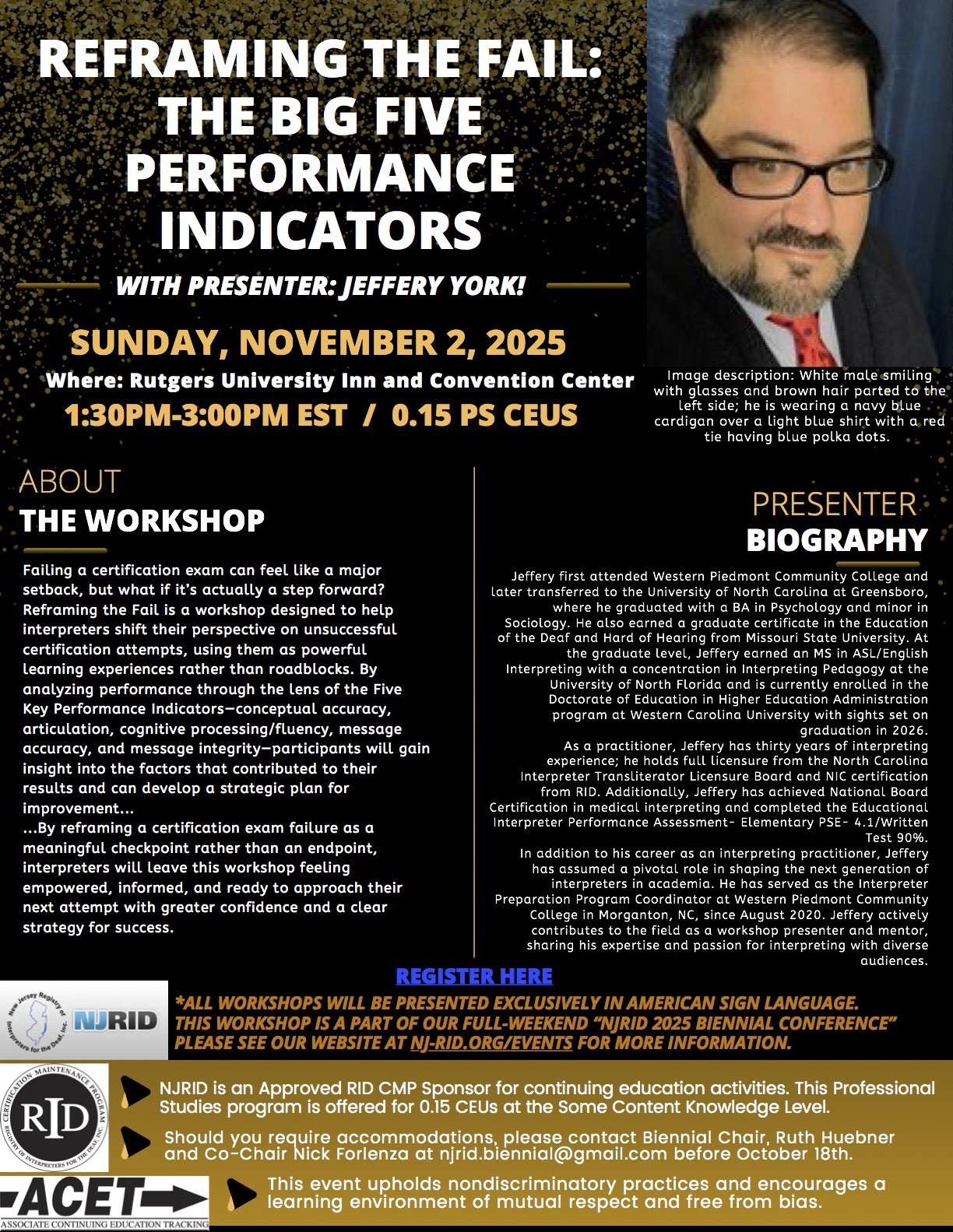NJRID Biennial Conference
Workshop Information
Register: Register for the 2025 Biennial Conference
Presenters: 2025 Biennial Presenters
Entertainment: Keith Wann
Conference Vendors: Vendors
|
We've all felt the fleeting rush of inspiration, but how do we turn that spark into a fire of sustained action and achievement? This keynote explores the research-backed strategies that empower individuals to set meaningful goals, overcome obstacles, and build a resilient mindset. Dr. Vicars will reveal how to harness the power of language and SMART goals to cultivate a growth mindset and transform your daily routine into a powerful engine for success. Learn the art of sectioning big dreams into achievable steps, focusing on the process, and connecting your hard work to a deeper sense of purpose. |
Enjoy a night of storytelling and ASL Culture. Laugh with Keith as he takes you on a hilarious "visual" journey to describe his childhood experiences. Come learn about the Deaf and Hearing Worlds and how they often clash with the help of a mischievous child of deaf adults... |
|
|
Attendees will learn about classifiers and how to transform visual storytelling into ProTactile. Different sets of stories where interpreters can learn to make us feel the story LIVE with sensory touches. Example: A little boy climbs a tree. He grows up to a young man, he cuts the tree down, and uses branches as a fireplace. As an old man, bored, he carves that tree into a small boat. Later, he drills a hole in the boat, plants seed, and grows another tree out of it. Attendees will also learn how to roleshift in PT along with touch imagery using classifiers on the body. Vocabulary will feel realistic in the hands and arms of the receiver that the storytelling becomes 3D to the receiver. It sparks more imagination to the blind. |
|
You just finished interpreting a teamed assignment, and the other interpreter turns to you and asks if you have any feedback. Is your initial response to create space for conversation about the work? Are you inclined to tell your team about the awesome depiction they incorporated? Share the minor detail they omitted? Or do you reply with “Feedback? No, |
|
The arraignment is the most common legal proceeding you will encounter as a legal interpreter. Arraignment quite often means interpreting the Guilty Plea Litany – a highly complex linguistic hurdle for Deaf litigants. Interpreters planning to do legal work must have a strong understanding of the Guilty Plea Litany and have many strategies to customize their interpretation to best suit each client. |
What do you do when the words feel heavy, awkward, or push against your comfort zone? This workshop will explore strategies to lean into such moments—transforming discomfort into growth. Through reflection and practical tools, participants will discover how to build resilience, sharpen their skills, and deliver interpretations with integrity, even in the most challenging situations. |
|
|
In this session, participants will develop and practice strategies for managing the flow of an interpreted interaction in a medical setting, demonstrate new skills in role plays, and apply the process of journey mapping to identify opportunities for impact. |
American Sign Language has numerous visual elements and learning to incorporate these features into our work is essential. Participants will consider various visual aspects of 3-D space and how meaning is accurately determined by examining the various elements or components (handshape, movement, speed, size, etc.) of the signed message. This workshop will also focus on improving fluency and accuracy of classifier use (the various handshapes) within 3-D space. In addition, participants will gain a better understanding of classifier production as well as |
|
|
How can one create new classifiers extemporaneously? The use and variety of classifiers go beyond the standard ones taught in ASL classes. True fluency in ASL includes the ability to create and incorporate new classifiers that are syntactically correct, and the meaning of such classifiers clearly conveyed. Attendees will learn models for classifier creation opportunities and a great understanding of classifier use, through group discussion and development. |
We are all familiar with the Miranda Warning. We’ve seen it issued on countless TV shows and movies, but do we really understand it? The concepts can seem simple on the surface, but do we understand them on a deep enough level to produce an ASL equivalent that affords Deaf people the opportunity to knowingly exercise or waive their rights? |
|
|
Ethical dilemmas are never simple or straightforward. During this workshop, ethics will be defined and addressed, as well as looking at concepts and ideals that guide our decision-making in our interpreting practice. Mental health settings are already a complex world of acronyms, therapeutic approaches/philosophies, and jargon, all of which add an additional layer to the ethical hurdles we have to navigate. We will define ethical principles influenced by the mental health setting(s), discuss frameworks for ethical decision making, and consider the interpreter's thought process while making choices in their approaches. Collectively, we will support one another as we recognize the influence of our decisions. |
This workshop explores the types of interactions that occur in medical settings between DeafBlind & Interpreter individuals. This workshop describes the interaction challenges that naturally occur, the linguistic challenges interpreters face when translating medical information and the tools that interpreters can employ to navigate these challenges effectively for a DeafBlind patient. We will address how issues of oppression can emerge in medical settings during information exchange for DeafBlind participants and provide special focus on how to utilize tactile space to better convey complicated medical information. This course will be conducted in ASL and is structured to allow for practice at |
|
|
Accuracy is widely regarded as a core attribute of a competent interpreter. However, defining and measuring accuracy is far more complex than it may initially seem. This workshop delves into this topic by drawing on Cognitive Grammar (Langacker, 2008), specifically the concepts of content and construal, to provide interpreters with a more refined understanding of accuracy in interpretation. While accuracy is often assumed to be a straightforward replication of the source message, this workshop will challenge that assumption by exploring how different interpretations can be equally accurate yet diverge in their construal... |
Knockout the CASLI Performance, is an intensive workshop designed for aspiring and working interpreters seeking certification. The workshop is founded on the principle that certification is not merely a credential to obtain but a personal and professional development journey. Through comprehensive slides, interactive discussions, and practical exercises, participants will discuss personal growth, interpreting strategies, scoring insights, and |
|
|
As interpreters, our bodies and minds are our most valuable tools—yet they’re often overlooked in the demands of the job. Led by a licensed physical therapist, yoga teacher and interpreter, this workshop explores the foundations of physical and mental wellness specific to the interpreting profession. We’ll discuss how to recognize signs of overuse and injury, practical strategies to prevent them, and what steps to take if pain or strain occurs. Learn how movement—especially yoga—can support long- term sustainability and reduce stress. A simple, optional yoga sequence will be offered during the session to help participants reconnect with their bodies and leave with tools they can use immediately. Whether you're new to wellness or looking to deepen your practice, this session will empower you to protect your most essential asset: yourself. |
Communication typically involves three modes: description (“telling”), indication (“pointing”), and depiction (“showing”) (Clark 2016). Sign language interpreters are often encouraged to “show, not tell,” yet what depiction actually shows remains vague. To move beyond intuition, this workshop applies Cognitive |
|
|
Failing a certification exam can feel like a major setback, but what if it’s actually a step forward? Reframing the Fail is a workshop designed to help interpreters shift their perspective on unsuccessful certification attempts, using them as powerful |
|
|

